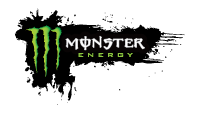There are several points in the 22 year timeline of Charlotte O’Connor that you might attribute to her metamorphosing into Charlotte OC, future pop star. The first was when she used to dress up as a witch as a child, stand at the end of her driveway staring at passersby in a long black dress. The last was in November 2012 when she was in Berlin for a co-writing session for her debut album.
Finding herself at the Berghain, probably the best nightclub in the world, on Sunday afternoon, a new impulse hit the singer/songwriter. ‘I felt like somebody had just let me in on the biggest secret in the world.’ Because the monolithic temple of nightlife and seat of modern bohemianism doesn’t allow cameras or press in, in some ways they had. A new loop for her music began to foment in her mind. ‘It felt like heaven and hell to me.’
‘Certain things that I saw I could not believe,’ she says, of the temple to decadence. ‘I stayed for on...
Show the rest
There are several points in the 22 year timeline of Charlotte O’Connor that you might attribute to her metamorphosing into Charlotte OC, future pop star. The first was when she used to dress up as a witch as a child, stand at the end of her driveway staring at passersby in a long black dress. The last was in November 2012 when she was in Berlin for a co-writing session for her debut album.
Finding herself at the Berghain, probably the best nightclub in the world, on Sunday afternoon, a new impulse hit the singer/songwriter. ‘I felt like somebody had just let me in on the biggest secret in the world.’ Because the monolithic temple of nightlife and seat of modern bohemianism doesn’t allow cameras or press in, in some ways they had. A new loop for her music began to foment in her mind. ‘It felt like heaven and hell to me.’
‘Certain things that I saw I could not believe,’ she says, of the temple to decadence. ‘I stayed for only a few hours but left inspired.’ Amid the darkness there was beauty, a scintillating tangent for a songwriter. She heard a mix of Bon Iver’s Hi Life being cut up on the spot in the main room and looked at the intensity of the scene around her. ‘Just hearing that voice. I couldn’t believe where I was. What I was hearing was heaven, what I was seeing was a version of hell. It was the most amazing clash of the senses. I have thought about that afternoon many times since.
Charlotte’s songwriting inspiration began to chime to a new, ethereal beat. ‘The whole place just blew my mind. I wrote, Colour My Heart when I came back,’ which became the song that would come to define her direction, a bewitching and unique ‘spooky gospel soul’ that sounds prematurely hit-ready. ‘I want my music to sound like Berlin feels. The chords to Colour My Heart are how I hear Berlin.’
Because she was born in Blackburn in the early 90’s there was perhaps something in the bloodline, the demography and geography that would connect spiritually, if not necessarily stylistically in Charlotte’s music to the collapsing edges of a dance-floor.
Charlotte OC understood music as an outlet to process emotion as a five-year-old child. The daughter of a half Malawi, half Indian mother and Irish father who was in The Merseybeats for a few moonlighting months in the ‘60s, the house echoed to the strains of classic songwriting. John Martyn, James Taylor and Joni Mitchell were complemented by the artistic nervous breakdown of Talking Heads, a family favourite. The youngest of three sisters, she resolved to create her own musical universe at 5. ‘I remember my middle sister telling me I couldn’t go somewhere with her and it was the first time I’d known pain. I remember thinking, it’s fine, I’m going to be a singer. I just had that belief.’
Other options failed to present themselves. ‘I wasn’t academic at all. I went to a really bitchy and competitive all-girls school. Singing was all I could do and all I wanted to do.’ The first artist she owned, her epiphany experience, was Alicia Keys. ‘Sat behind a piano, doesn’t have to take her clothes off, she became an instant idol for me.’ She also proved a gateway drug, into the soul singers she now calls to mind. When Charlotte sings there are echoes as diverse as Candi Staton and Stevie Nicks. Genre doesn’t matter to her, so long as it’s true.
Armed with an unusual education of classic songwriting at home, by 15 she had begun singing her own songs. By 16 she was posting on MySpace and quickly picked up a management and record contract.
‘At 16 you really don’t know who you are,’ she says ‘I was at a major label, working with great people but I had no idea how I should sound or what direction I wanted to go in. I had to learn to be myself. It wasn’t the right time. I wasn’t ready.’ A record she slaved over was deemed fit for release by the time she was 18. It never came out.
Her baptism of fire she now thinks was part of the process. ‘It was the biggest relief when I was released from the contract. I wasn’t proud of the music I was performing and that sense of personal pride is so important to me and fundamental to my music. It’s you, at the end of the day. What I have now is a maternal feeling towards the music. With that album I hadn’t any experiences to draw on. I hadn’t gone through love or death. I had never loved anybody. So a love song couldn’t be sincere.’
Fundamental changes happened in her late teens when she began writing for herself, not for other people’s ideas of what she should be. Free from the restrictions of commercial expectation, she had something to write about. ‘I got dumped big time, for being a naughty girl. It was raw.’
Charlotte’s songwriting is sophisticated and immediate, familiar and strange. She says she likes wordplay and imagery but has also learnt to trust a gut instinct. She had her ‘lightbulb moment’ co-writing moment at Tim Anderson’s studio in LA. ‘I’m obsessed with Tim Burton and that studio is like he’s thrown up all over it. It’s my favourite place. I met Tim, had a cigarette, went back inside, he started playing something on the piano and it just happened. I knew that working with him just flowed. The song, the lyrics, it was all so easy to write.’ The deep ascending chord sequence was her touch. ‘I love writing melodies more than anything. It’s about what the voice is saying. Everything else is embellishment.’
Charlotte is a thoughtful and sometimes abstract lyricist. She came up with the suitably stroppy, Philly soul-sounding hook for Hangover in exactly that state. ‘I’d been rat-arsed the night before and went back in the studio apologising to Tim for being hungover. He started playing a beat and I told him I had to go. As I was walking out of the door I started singing the word “Hangover” and we both came in with “In the morning”. It was fully natural. The best co-writing is when you feel like you’re working from the same brain. I went back and we nailed it.’ She cites an early love of Dolly Parton’s incredible ear for melodic storytelling for any country overtones to her tunes.
Charlotte is currently at the closing stages of what will be her EP with debut album to follow, a sultry composite of structured song-writing, a freewheeling vocal range and subtle electronic edge. She is ready for her close-up. ‘I couldn’t be prouder of it,’ she says. At the finishing-touch stages of her hallucinatory 21st century soul epic, she has every right to be.
ENDS
Hide the rest











